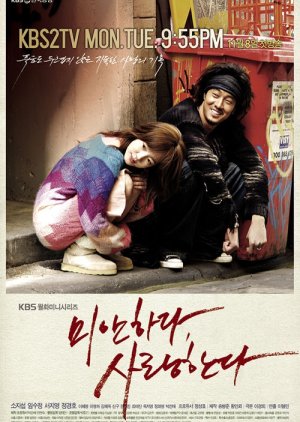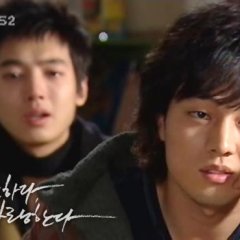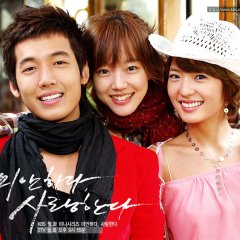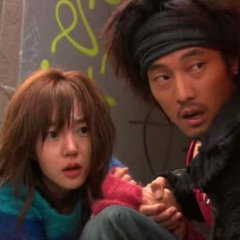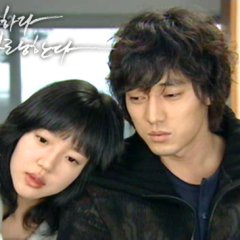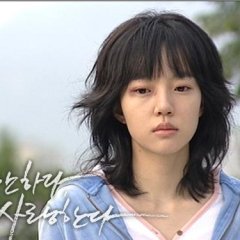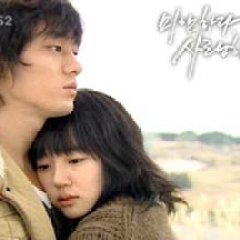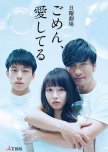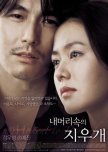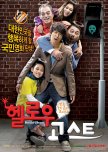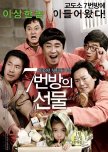 So Ji Sub in talks to lead a webtoon based K-drama
So Ji Sub in talks to lead a webtoon based K-drama Adopté par une famille australienne, Cha Moo Hyuk fut finalement maltraité et abandonné très jeune. Il survit et grandit seul dans la rue pendant des années. Des années plus tard, il rencontre par hasard Song Eun Chae, l'assistante de Choi Yune, un chanteur célèbre en Corée du Sud, dont elle est secrètement amoureuse. Mais sa rencontre avec Moo Hyuk finit par affecter non seulement sa vie mais aussi celle de son "précieux" Yune. A cause d'un accident avec son ex-petite amie, il ne reste à Moo Hyuk plus que trois mois à vivre. Cette nouvelle le pousse à retourner en Corée afin de retrouver sa mère biologique. Les découvertes qu'il fait change son coeur drastiquement : d'envieux, il se remplit d'un désir de revanche amère. Mais malgré toute cette noirceur qui l'entoure, il trouve une source de bonheur inattendu avec quelqu'un qu'il ne s'attendait pas à aimer. (Source: English = DramaWiki || Traduction = ceci_06 at MyDramaList) Modifier la traduction
- Français
- Русский
- Español
- English
- Titre original: 미안하다, 사랑한다
- Aussi connu sous le nom de: Mianhae Saranghae , I'm Sorry I Love You , Sorry I Love You , Sorry But I Love You , Mianhada, Saranghada
- Scénariste: Lee Kyung Hee
- Réalisateur: Lee Hyung Min
- Genres: Romance, Drame, Mélodrame
Distribution et équipes
- Im Soo Jung Rôle principal
- So Ji Sub Rôle principal
- Jung Kyung Ho Rôle principal
- Ok Go WoonSong Sook ChaeRôle Secondaire
- Seo Ji YoungKang Min JooRôle Secondaire
- Jung Ji AhnSong Min ChaeRôle Secondaire
Critiques

Something special about this drama is certainly the scenery they used for some scences. Just Beautiful. (Next to other awards this drama got Best Picture Award). Some thing else that is special about this drama is the ending (which I loved). I am sure you cried while watching a movie before, not because you're actually sad but because it was so emotional. And when the movie ended so did your tears. Here, I cried because I was actually sad. That's how attached you get to the characters.
But dont let that keep you from watching it. It has a great male lead. good story that keeps you interested.

Truly touching. It makes you angry and concerned, too. You will ride in a rollercoaster of emotions.
"Sorry, I Love You" is an early masterpiece of proven KDrama art, which once again juggles the injustices of ordinary people with sensitive finesse in an emotionally draining manner - against the background of a South Korean sensitively reinterpreted Romeo & Juliet love story.Humiliation, exploitation, devaluation are the everyday life of the socially weak, while the celebrated, influential contemporaries seem to know no shame in their arrogance and haughtiness.
So Ji-sub hauntingly embodies subtly controlled, concentrated, suppressed anger. In the character of the protagonist, hate and compassion, love and indifference are combined in a fatal mixture. He becomes an incalculable time bomb that could be activated at any time.
Of all the early Makjang-infused KDramas, "Sorry, I Love You" is one of my favourites. Even if 'love' is bold in the title, the story doesnt´t romanticize it in a striking and cliché-like manner, yet the KDrama tells the story understated elegantly, but no less touchingly and also sincerely (...and of course dramatically tangled in a complex way.)
There is brother rivalry, revenge, swapped babies, secrets, complicated feelings, accidents, illnesses - the whole program prepared in a new mixture. The KDrama expresses in a concentrated, mostly subtly restrained (and thus even more vehemently impactful) emotional force how arbitrary, mendacious and unfounded it is that some people believe, they are 'justifiably' above others and thus have the given right to make decisions about them.
The KDrama uses a rarely found dramaturgical move to give the emotional force of the collision of two worlds even more power: the protagonist was put up for adoption abroad as a child. So he not only grew up with the feeling of not being wanted, but also with other western socialized (Australian) values. Subservience and humility are not among his strengths. He tends not to respect people in authority, or at least the authority has to prove itself as such first. He often acts disconcertingly strange. In South Korea, however, manners and respect for the elderly and higher ups are everything. Since he's Korean, people hardly pardon his naughtiness (as they would an obvious foreigner).
A touching story that makes you angry and also concerned. You will ride in the rollercoaster of emotions - while one emotional looping has not yet been completed, you are already on the way to the next.
-------------SIDE NOTE: ---overseas adoption of South Korean children---
...is a sad story that began after the end of the Korean War. Since then, around 200.000 children have been adopted, primarily from families in the USA, but also from Canada, Australia and Europe. First they were war orphans, then children from poor families, but then also children from illegitimate or divorced backgrounds. In the 1970s and 80s it became a profitable business. On the one hand, the government imposed veritable quotas on the adoption agencies. On the other hand, demand from western countries was high. Corruption flourished in places - the children were given away to the highest bidder. A halt to adoption in the face of international criticism was followed by renewed liberalization of legislation - as a result of the (lack of) adoption policy of the past decades social system was not prepared for the number of 'orphans' (actually: abandoned children).
Most of those ´orphan´ children have now grown up. There are quite a few, who organize themeselves and advocate for change. They want others to spare the trouble of growing up in a country, in a culture in which they are seen as strangers and bullied for being different and confronted with racial prejudice. In many cases they remain strangers and outcasts, as their country of origin cannot be/become a home for them either. The 'hatred of the homeland' is probably rather high among foreign adopters. In 2004, when the KDrama was released, the mood in South Korea was sensitized to the concerns of foreign adoptions and so a critically discussed topic was filled with 'life' by this KDrama. In 2006, an adoption day was introduced in South Korea and finally, since 2007, the numbers have shifted: there are now more domestic than foreign adoptions in South Korea...

